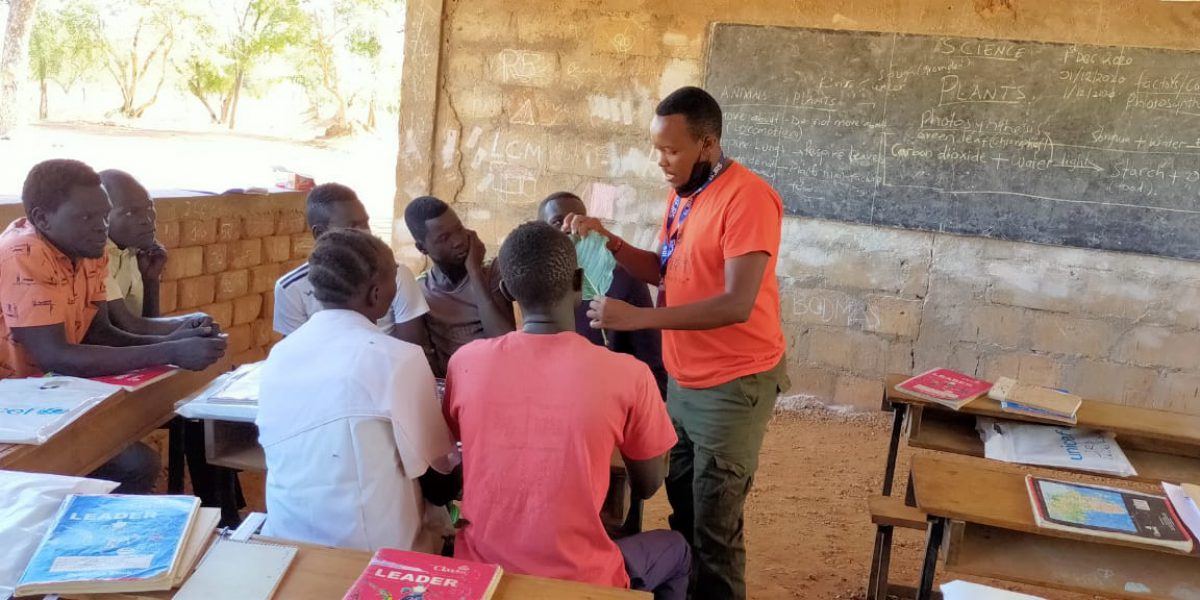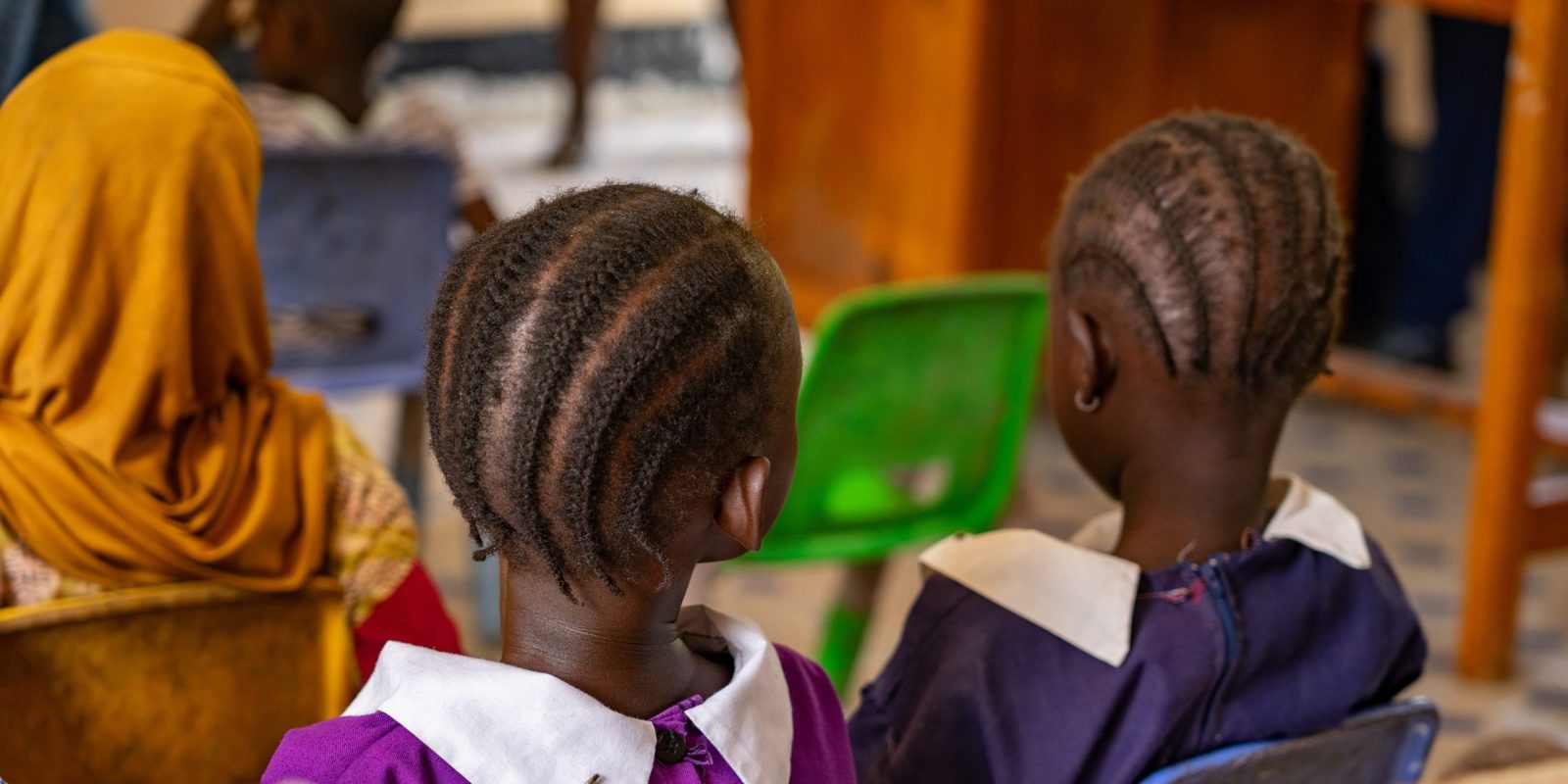
INTERVIEW FOR A JESUIT MEMBER : MICHAEL KINAKA SJ
- Name Country of Origin
Michael Kinaka, SJ. A Jesuit from Kenya.
- Current Country where he is working
Theology studies in Paris, France.
- When did you join the Jesuit?
I joined Jesuits in the year 2015. I did my novitiate formation in Arusha Tanzania, My Philosophy studies in Harare Zimbabwe, my regency experience with JRS South Sudan and at the present I am studying Theology in Paris, France.
- What pushed you to do so?
I would say that my joining the Jesuits was a response to God’s invitation to me, to grow in love and service. Before joining the Jesuits, I went on with my normal life and career. I was also committed in the faith and in the affairs of my community. At some point I strongly felt invited and inspired by what priests do for people and with people. With the help of a spiritual director, I came to understand that sometimes God invites us by putting in us a ‘desire’ for something good. Based on this zeal to do something more for God, I made my decision to join the Jesuits.
- can you talk about the life of being a Jesuit?
Being a Jesuit has been a very exciting experience for me. I love the Ignatian ingenuity that sees the world through the lens of God. This spirituality is instilled in us throughout our Jesuit formation through means such as doing the Spiritual Exercises, reflections and sharing in community life, studies, apostolates and so on. It is a journey of daily conversion that involves discovery of God who dwells and labours in all creatures. Upon this discovering God in others and in the world, we then contemplate Him in everything that happens to us. This way, we begin to see all things new in Christ. This revolutionary vision informs our way of life and proceeding in the world. This is why as a Jesuit, I am open to minister in a predominantly ‘Theistic’ populations like in my own country , as well as to populations that are the reverse.
- Challenges?
- There is always a sad feeling for me when I have to leave a particular mission for another one. For example, it was quite emotional for me to leave my students in Maban refugee camp and the different people we worked together. However, St. Ignatius cautions us to order our attachments for God’s glory.
- Secondly, taking missions in frontier areas (areas of greater needs) is not always easy, sometimes it is characterized by a feeling of inadequacy and helplessness. It is a reality that we have to embrace and the sooner we realize that we are just but God’s vessels, the better. God who is the owner of the mission is always in control.
- What difference are you doing to the world by being a Jesuit?
- The Spiritual Exercises have shaped the way I pray, the way I make decisions, and the attitude with which I approach work and relate to other people. This is because, through the Spiritual Exercises, I discover God’s immense love for me. My response to God’s love then becomes love for my neighbor.
- By Being a Jesuit increases generous availability to journey with and to accompany others. This availability for me is made easy through my vows of obedience, poverty, and chastity. I feel that all three vows have freed me for that availability to make my contribution in the world in a quite intentional and special way.
- Tell me about your work as a Jesuit in South Sudan?
South Sudan is home, it is one of the countries belonging to the Jesuit province of Eastern Africa, the province through which I joined the universal society of Jesus. Ministering in South Sudan was a very enriching experience for my regency experience. Together with the JRS team members, I accompanied our brothers and sisters in Maban who are forcibly displaced. I served as an education program assistant and majorly participated in the formation of teacher trainees. Below are some of my reflections on our work with displaced brothers and sisters.
- For us, Jesuits, and by extension JRS, accompaniment involves a change of an attitude of ‘doing for’ to an attitude of ‘being there that is, ‘doing with. Through this meaningful presence, we become a voice for the voiceless and as a result, we become a hope for someone. I see JRS partners and team members as that special, gentle voice that advocates for that hope-filled future for our displaced brothers and sisters.
- Listening with love is a quality of accompaniment. The ability to listen to one another is a sign of respect and concern for one another. Our displaced brothers and sisters have taught me how to respect, how to listen, and how to be a sign of hope for someone. I have seen my students in one way, or another become hopeful for one another through their different humanizing deeds.
- Jesuit education values. The education programming in Maban allows for the quality and holistic formation of our different education beneficiaries. I had an opportunity to share our Jesuit values of education, these are conscience, compassion, competence, and commitment. Our teacher trainees are helped grow and deepen in their awareness of themselves and of the world through different intentional education sessions such as debates and workshops. They have internalized values of compassion and love for the neighbor through different outreach/charitable activities. I once accompanied my students for an outreach activity whereby they built two houses for the elderly and the needy in their host community. This happened because through education they have discovered that they have received many gifts (skills, talents, energies) from God, and they too are agents of hope in a troubled world amidst their present status of being displaced.
- JRS mission identity draws from Jesuit spirituality. During this Ignatian year, we set out as a team to be renewed in the mission by the spiritual experiences of St. Ignatius of Loyola. I had an opportunity to collaborate with other JRS team members to serve as per our mission identity. In Maban, we intentionally strengthened our ability to reflect on our experiences in our work. We began our weekly debriefing meetings with different Ignatian reflections. We have had recollections and Eucharistic celebrations as a team to renew our energies in the service.
- How important is the visit of the pope to South Sudan?
I think pope Francis has been a voice for the voiceless. He is a sign of hope that the many displaced people of South Sudan long for. Pope Francis is also an agent of reconciliation that we are all part of. His visit would offer both spiritual and practical urgency for restoring peace and harmonious co-existence in the country and the region at large.
- What could be your message to the South Sudanese youth in particular?
To the youths in general and in particular to our students, you are the pockets of hope and excellence in your community. I like the way you take interest in important matters in your community. You have grown to be reflective persons in your actions and thought patterns. Of greater spiritual and temporal fruit is your growth into men and women for and with others. Use your skills always to protect, to care for, defend, pick up, and uplift someone on your way to that hope-filled future.
- Can you share a message with the community?
To my lovely people of great South Sudan. You are part of the splendor of God. We are all God’s children, His project. All that we are, and all that we have, all of it, we have received from our loving father. Let us rise in the same love and build communities that care, protect, serve, and accompany one another. We are all agents of hope and reconciliation. The starting point is Peace. Let us embrace peace and accept forgiveness. Let us strive and purpose to forgive and to let others forgive us. With reconciliation, and loving again, we shall make our Land the gem of Africa. I love you all. I will see you soon. My prayers and best thoughts on you.
Thank you , Father



